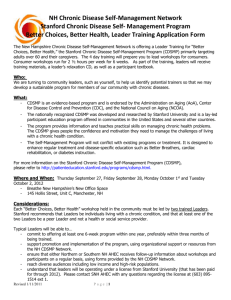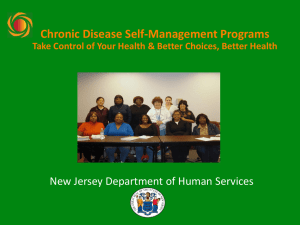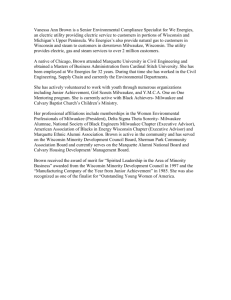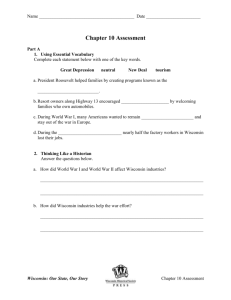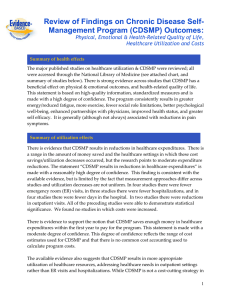Wisconsin and New Mexico TECHNICAL ASSISTANCE AND
advertisement
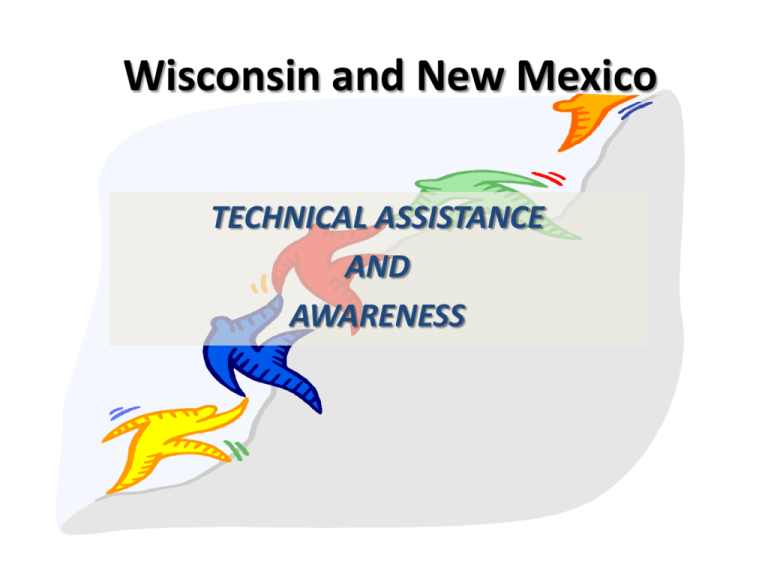
Wisconsin and New Mexico TECHNICAL ASSISTANCE AND AWARENESS Objective Participants will be able to: 1. Identify successful approaches for providing technical assistance and awareness building. Examples to Share- Key Elements NEW MEXICO Working with AHECs • Partnership Development/Background • Strong Infrastructure as an AHEC and in Southern NM for reaching the Hispanic Population • Delivery of CDSMP and AHEC Capacity over 8 yrs • Technical Assistance – Site visits, monthly calls, funding restructuring when barriers to contracting arise WISCONSIN Milwaukee Mentoring Model • Partnership Development/Background • Strong Infrastructure statewide and in Milwaukee County • Delivery of CDSMP and AHEC Capacity over 8 yrs • Technical Assistance – Monthly meetings, team development, training and consultation, statewide representation Likeness • Utilized an existing infrastructure and enhanced/strengthened the partnerships through technical assistance and funding • Special populations required a unique approach • Community Health Workers- lay leaders and promotoras • Partnership negotiations on deliverables and goals Differences • NM uses a Resource/Training Center AND WI uses a local aging unit with system partners doing delivery • NM provides funding for AHECs to provide project management for CDSMP (sole source) AND WI provides funding through indirect evaluation, training, and consultation for workshop recruitment (joint funding with WI Div. of Long Term Care) • Partnership deliverables are not ASSURED in WI but are in NM NEW MEXICO • • • • Limited staffing Travel and time Lead Trainer retention Buy-in from health care providers • Contract process WISCONSIN • Lots of aging representation and little public health • Trust in similar goals • There is another layer above this infrastructure NEW MEXICO • High completion rates • Increased access to workshops • Positive feedback • Enhanced partnership with AHECs and NMSU WISCONSIN • High level of active participation with lay leaders • Evaluation measures that show TA is working • Facilitation and recruitment for CDSMP is easier • Statewide recognition and duplication Audience Application & Dialogue • NOW: What did you learn that you can act on now? • FUTURE: What did you learn that you can act out in the future? • BARRIERS/SOLUTIONS: What barriers to expect to encounters? Solutions to barriers?

